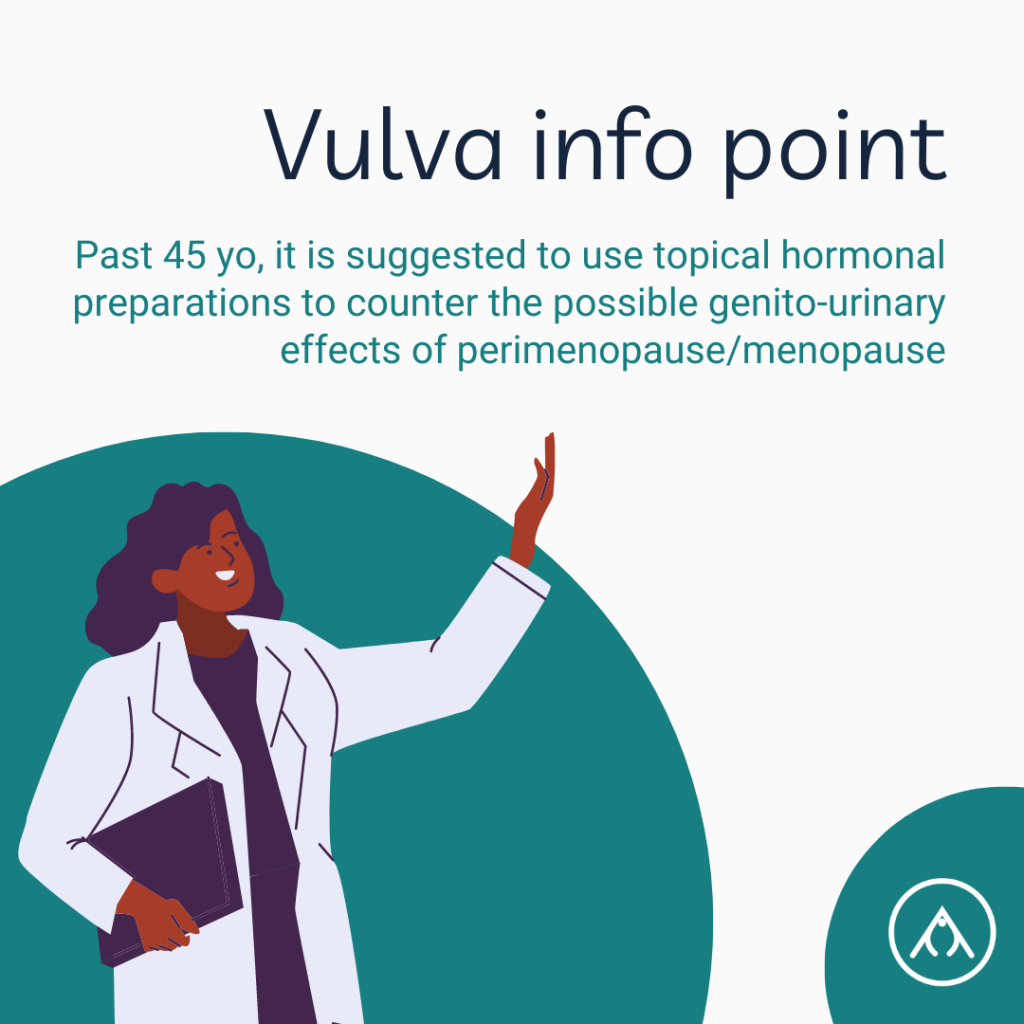Having attended so many conferences with world class researchers, I have to give back
Vulvae! Yeah! We love them. They are a fun spot for slippery actions. But sometimes they are a pain, and they give us pain, and they are out of control and it is definitely #UNCOOL.
One of the reason that can make vulvae misbehave is menopause/perimenopause: the drop of estrogen causes tissues to thin up which can bring about irritations, infections, dryness, urinary urgency, urinary tract infections and the likes (it’s called the genito-urinary syndrom of menopause). They suck, they impact quality of life and sexual well-being and they can also create serious health complications for elder people.
Good news though: we don’t have to suck it up and wait for it to pass.
So why aren’t we all celebrating while running to the pharmacy to grab the precious, vulva-saving tube?
Because it is under-prescribed. Vulvo-vaginal symptoms are still not treated that seriously by the medical field. Hormonal supplementation for menopausal symptoms also got a pretty bad rep at the beginning of the 2000’s with the WHI study that linked HRT (hormone replacement therapy) to severe health effects like blood clots and cancer. And it is this data that has stuck. Even if it was not correctly interpreted, the fear is still there, in doctors and patients alike.
And when you get a prescription for topical estrogens, at least in North America, it’s still those risks and side effects that you see mentioned on the notice. However, it is not the same way of administration, and it is only a fraction of the concentration that was used in the study…
There is a need to better train medical professionals about menopause.
After all, half of their patients are going to go through it, and while it may be a smooth sailing ride for some, those who are negatively impacted by it need to receive adequate, compassionate care for their symptoms.
Don’t trust me on this, I am not a doctor or a health professional. I am just the genital-making girl in the basement. But do trust people like Dr Rachel RUBIN, urologist and her colleagues who are working tirelessly to train doctors and spread the word in conferences, articles and social media. They know what they are talking about and they are relentless in their advocacy for better care during menopause/perimenopause. And for that they have a little medal on my wall of honours.


Comments are closed.